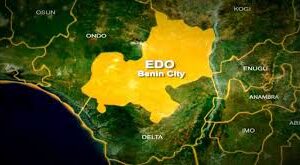Minerals Council South Africa, the representative body for the mining industry in the country, has called on the government to delay the implementation of the new carbon tax.
Minerals Council Environment Head, Stephinah Mudau said, “The Minerals Council would like to see a delay of at least five years in the implementation of the carbon tax to allow sufficient time for government to address the design challenges and the finalisation of the appropriate regulations.
However, “the Minerals Council embraces the industry’s obligation to lower emissions. Member companies have made significant progress in terms of implementing various mitigation options, including energy efficiency, a shift to renewable energy and the use of low- carbon-emissions technology, among others. Adaptation is equally important, as the mining industry is vulnerable to the impacts of climate change,” she said.
The US Tax Policy Center explains the carbon tax concept thus: “Emissions of carbon dioxide and other greenhouse gases (GHGs) are changing the climate. A carbon tax puts a price on those emissions, encouraging people, businesses and governments to produce less of them.”
It is not clear who originally came up with the idea of a carbon tax. The first country in the world to implement such a tax was Finland in 1990, followed by Poland that same year. The first emerging- market country to implement a carbon tax was Mexico in 2014, followed by Chile in 2017 and then, at the start of this year, Argentina. South Africa is poised to be next; according to Mining Weekly.
In a briefing recently, Mudau pointed out that the South African economy had not achieved, and was not achieving, its projected growth rates. Consequently, the country was likely to see its GHG emissions decline by 13% to 14.5% by 2025 and by 26% to 33% by 2035 without the carbon tax being implemented. The reductions would bring South Africa’s GHG emissions below the national benchmark trajectory.
Meanwhile, mining in South Africa has become a marginal industry. While its input costs in rand terms rose at a yearly average rate of 8.2% between 2013 and 2018, its selling prices increased by an average of only 4.3% a year over the same period. Within the broader industry, it is the gold and platinum mining sectors that have been particularly stressed. In 2017, 69% of gold and 52% of platinum-group metals (PGMs) mines were operating unsustainably. Nevertheless, the gold and PGMs mines employed 287 970 people, or 62% of the country’s total mining workforce. A carbon tax of 10c for every litre of carbon dioxide would, if it had been applied in 2017, have caused a net loss of 3 703 direct jobs and 6 836 indirect jobs in the mining sector.
“The Minerals Council’s biggest concern with regard to the carbon tax is the design of the tax and the socioeconomic impacts that the tax will have on various sectors of the economy, including mining,” highlights Mudau.
“It adds yet another layer to the industry’s already extremely heavy cost burden at a time when most of the mines that are the heaviest users of power – the deep-level gold and platinum mines – are already operating marginally or at a loss. This concern is exacerbated by the fact that, in our view, South Africa’s GHG emissions are already below levels required for the country to meet its obligation to reduce carbon emissions, and the carbon tax will not facilitate further reductions.”



